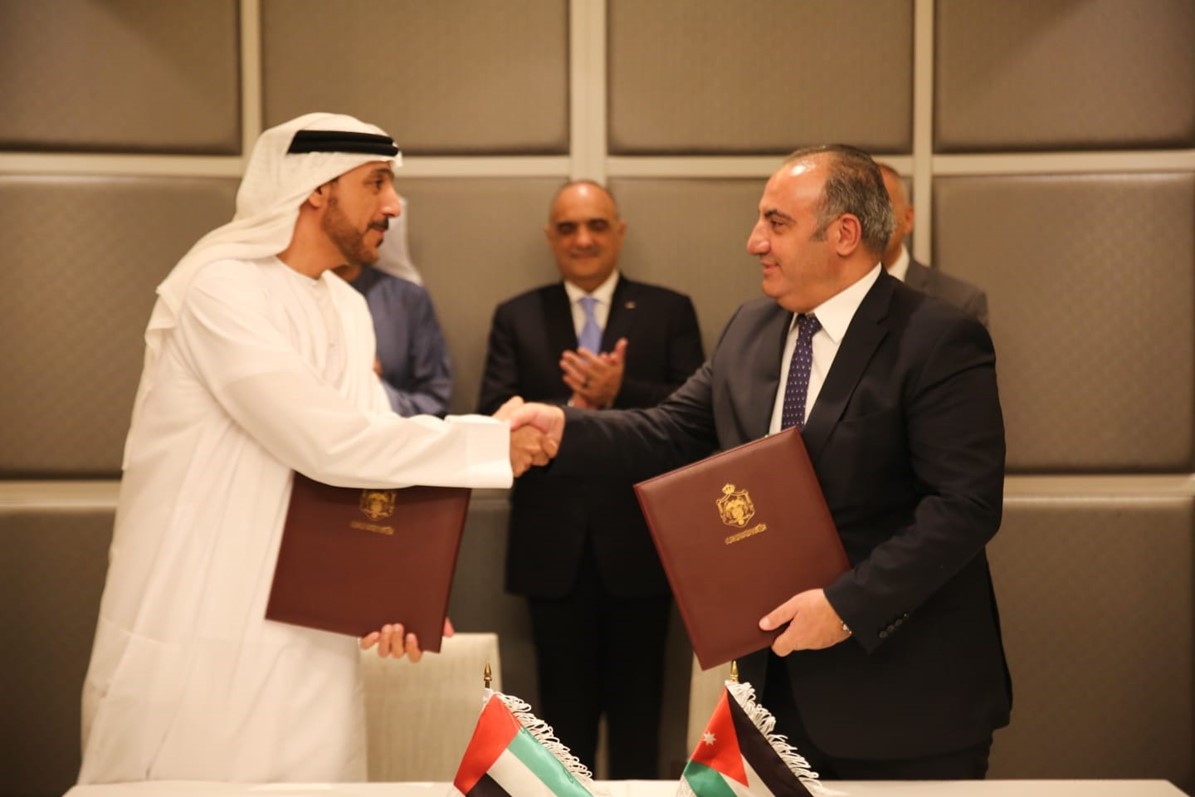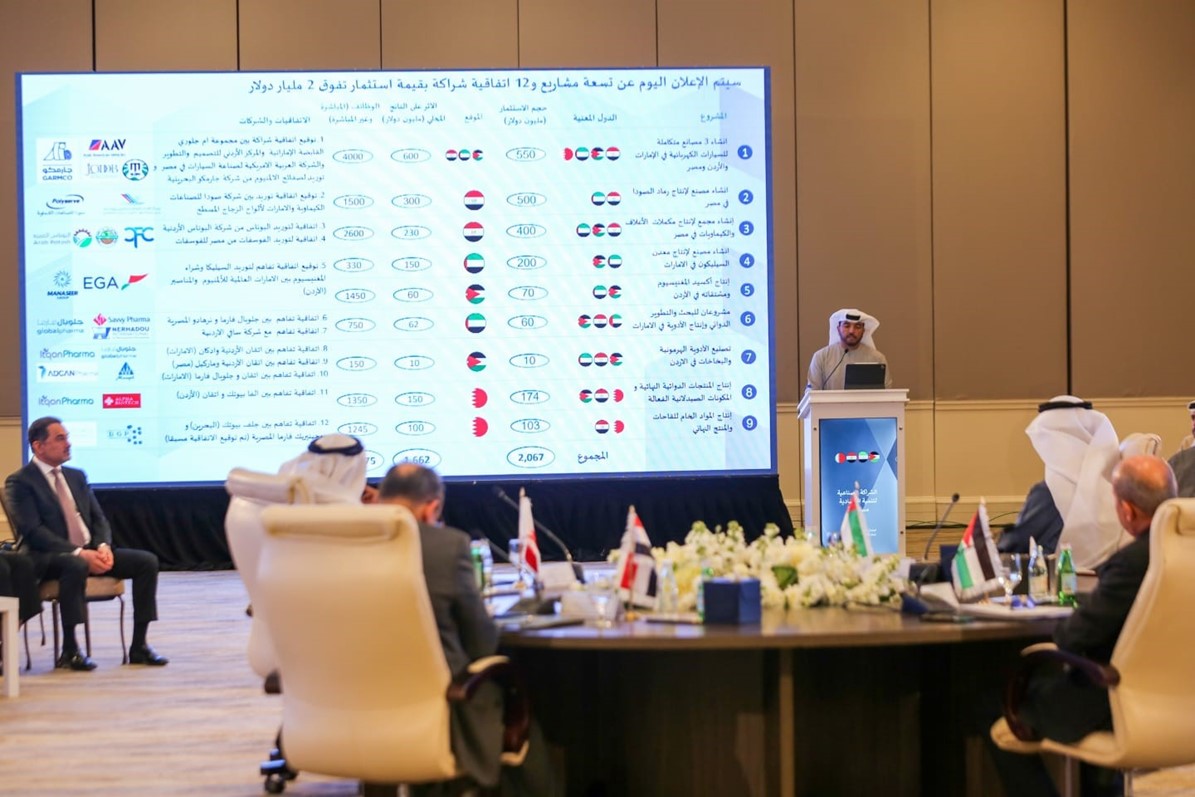AMMAN — Jordan, the UAE, Egypt, and
Bahrain, on Sunday announced the signing of 12 agreements and partnerships
worth more than $2 billion for nine joint industrial projects.
اضافة اعلان
The Integrated
Industrial Partnership for Sustainable Economic Development, a quartet cooperation
vehicle, held a meeting to facilitate the agreements that are expected to
generate 13,000 job opportunities and add $1.6 billion to the GDPs of the four
nations, the Jordan News Agency, Petra reported.
Projects and partnershipsDuring the meeting, Prime Minister
Bisher Al-Khasawneh, presided over the signing of the 12 agreements. Meanwhile,
Minister of Industry, Trade and Supply, and Minister of Labor Yousef Shamali
chaired the meeting.

The UAE's Minister of Industry and
Advanced Technology
Sultan Bin Ahmed Al Jaber, Egyptian Minister of Industry
and Commerce Ahmed Samir Saleh, and Bahraini Minister of Industry and Commerce
Abdullah bin Adel Fakhro participated in the meeting as well.
The joint industrial projects will
include the Emirati automotive company "M Glory Holding," which will
invest $550 million to establish three electric car integrated factories with
production and assembly lines in the UAE, Jordan, and Egypt, with an initial
three-year production target of 40,000 compact crossover vehicles.
Meanwhile, the
Greater Amman Municipality and the Abu Dhabi Waste Management Company signed a waste
management agreement, and Emirates Global Aluminum (EGA) pledged $200 million
to build a silicon metal plant in the UAE.
The Jordanian Manaseer Group will
supply raw silica for the EGA facility, while also investing $70 million to
expand Manaseer Magnesia, a subsidiary, and create two units for the production
of calcium chloride and magnesium hydroxide.
Other partnerships include between
Jordanian "
Itqan Pharma" and Bahraini "Alpha Biotech"
companies for the transfer of technology and co-manufacturing, as well as
collaboration between Emirati companies "Global Pharma" and
"Adcan Pharma" and "Itqan" for technology transfer and
manufacturing.

Further agreements were reached for
the production of generic medicines, oncological pharmaceuticals, and medical
solutions with an annual production capacity of 350 million tablets.
Egypt's chemical industries company
will also invest $500 million to produce sodium carbonate, which is the primary
raw material for the glass and
detergent industries, while the Bahraini Gulf
Biotech Company plans to build a facility to produce raw materials for vaccines
with an investment of $103 million.
‘Coordinated Arab effort’Shamali, the minister of industry,
trade and supply, and minister of labor, praised the partnership as a
coordinated Arab effort overseen by the highest political authorities in all
four countries. He also said that His Majesty King Abdullah II had ordered the
government to do everything in its power to speed up the initiative's goals.
UAE's Minister of Industry and
Advanced Technology Sultan Bin Ahmed Al Jaber, said that his nation continues
to place a priority on collaboration and the integration of efforts to achieve
comprehensive and sustainable economic development, and create a strong
foundation for industrial cooperation that benefits all parties.
Egyptian minister of industry and
commerce, Saleh, pledged his government's commitment to the partnership and its
success, emphasizing the benefits of Arab industrial integration.
Bahraini minister of industry and
commerce, Fakhro said that his nation had completed the necessary legislative
processes to ratify the partnership statute.
The partnership's executive
committee met in Amman on Saturday to finalize their recommendations and report
before submitting them to the Partnership's Higher Committee for approval.
The committee will continue to seek
potential projects, assess and approve those in the pipeline, and examine the
viability of new projects like the construction of a
fertilizer plant in Jordan, which is projected to cost around $800 million.
Read more National news
Jordan News



